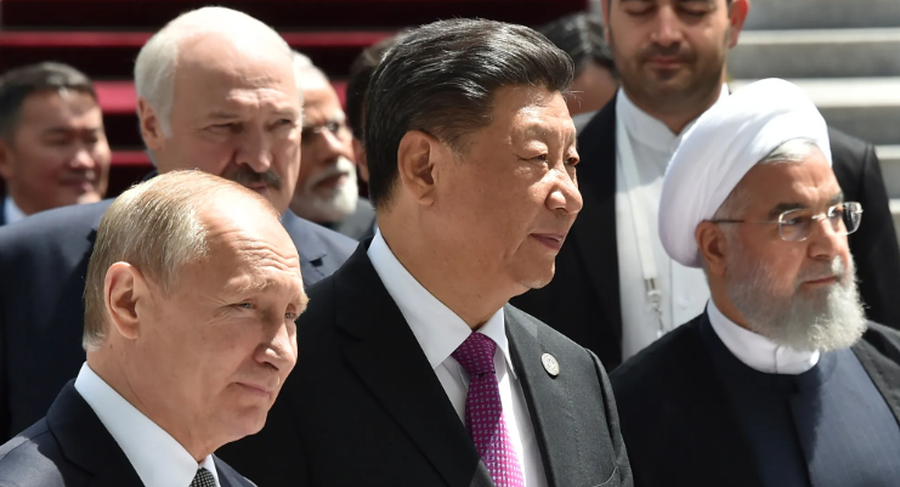
Beijing called for "calm" and "restraint" as it hosted trilateral talks with Tehran and Moscow on March 14 in an attempt to find a diplomatic solution to the Iran nuclear issue.
"In the current situation, we believe that all parties should maintain calm and exercise restraint, so as to avoid escalating the Iranian nuclear situation or heading towards confrontation and conflict," Chinese Foreign Ministry spokeswoman Mao Ning said at a press conference before the meeting.
The meeting was attended by Chinese Deputy Foreign Minister Ma Zhaoxu, Russian Deputy Foreign Minister Sergei Ryabkov, and Iranian Deputy Foreign Minister Kazem Gharibabadi.
After the meeting, Chinese state broadcaster CCTV reported that "the three sides exchanged views on the Iranian nuclear issue and other issues of common concern," but gave no further details.
Tehran and Moscow have strengthened relations in recent years as Iran's disputes with the United States have escalated. Both countries have also maintained close ties with China.
This week, the three countries held naval exercises in the Gulf of Oman, near the strategic Strait of Hormuz, as a show of force in the Middle East, with participating ships stopping at the Iranian port of Chabahar.
Attention on Iran's nuclear issues has intensified in recent days after US President Donald Trump said he had sent a letter to Tehran demanding the resumption of nuclear talks and warning of possible military action if Iran refuses such talks.
The Iranian Foreign Ministry on March 13 said it would make a "full assessment" before responding to Trump's letter.
"The letter was received last night and is currently being reviewed," spokesman Esmaeil Baqaei said, according to the state news agency IRNA. He added that "a decision on how to respond will be made after a thorough evaluation."
Trump proposes holding nuclear talks with Iran
On March 10, Iranian Foreign Minister Abbas Araqchi wrote on the X platform: "We will not negotiate under pressure and threats. We will never consider this, no matter what the topic may be . "
During his first term as president, Trump withdrew from the landmark deal that had placed limits on Iran's nuclear program in exchange for sanctions relief. Trump argued that the agreement was not enough to prevent Iran from developing nuclear weapons and accused Tehran of fomenting extremist violence in the region, a charge that Iran denies.
China, Russia, Britain, France and Germany were signatories to the 2015 nuclear deal with Iran.
After the US withdrawal in 2018, Tehran gradually began to violate its nuclear commitments, as efforts to reach a new deal have failed. Iran claims its nuclear program is for peaceful purposes.
Beijing stated that the trilateral talks aim to "strengthen communication and coordination to resume dialogue and negotiations as soon as possible . "
"China hopes that all parties will work together, continuously enhance mutual trust and dispel doubts, turning the momentum of resuming dialogue and negotiations into reality as soon as possible," said spokesperson Mao.
Meanwhile, the US announced it was imposing sanctions on Iranian Oil Minister Mohsen Paknejad, as well as several Hong Kong-registered ships that are part of the shadow fleet “on which Iran depends to transport its oil” to China. Tehran condemned the decision, calling it “hypocrisy.”
The US statement said Paknejad "oversees the export of tens of billions of dollars of Iranian oil and has allocated billions of dollars of oil to Iran's armed forces for export . "/ REL (A2 Televizion)











